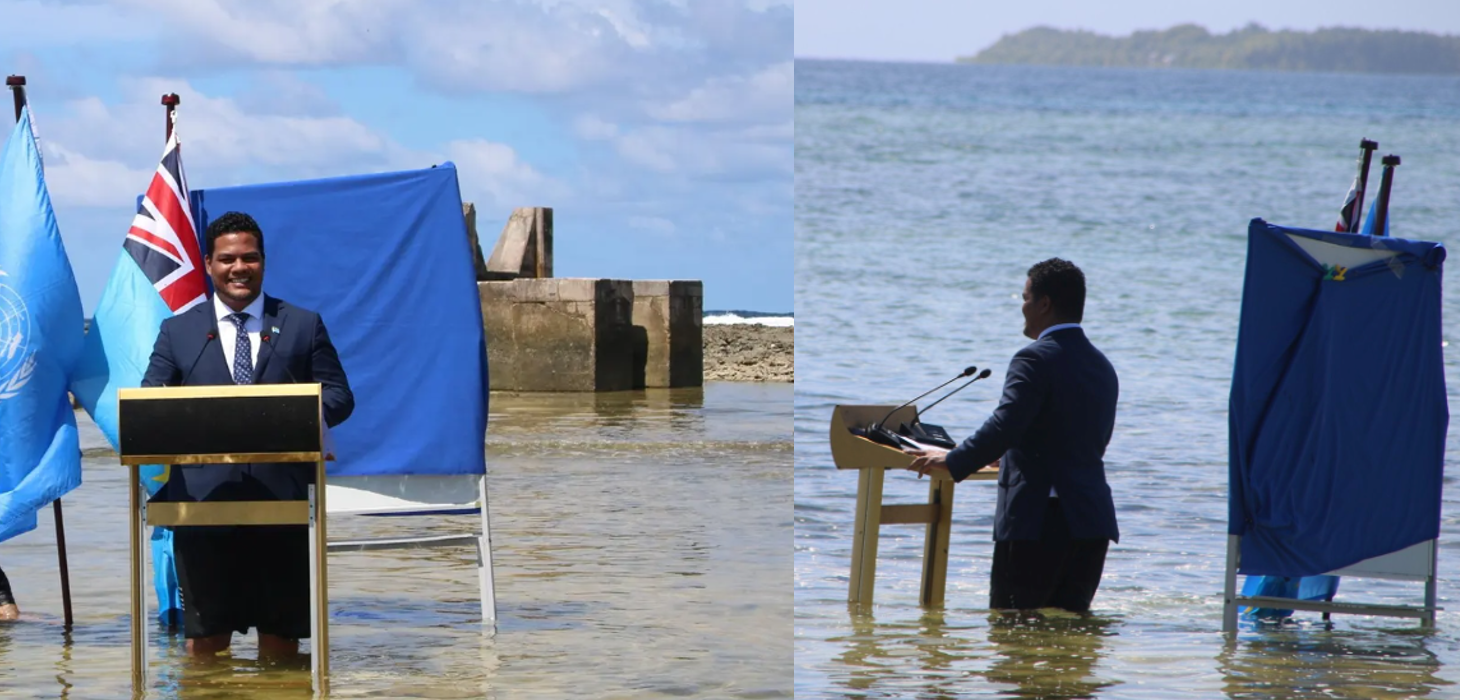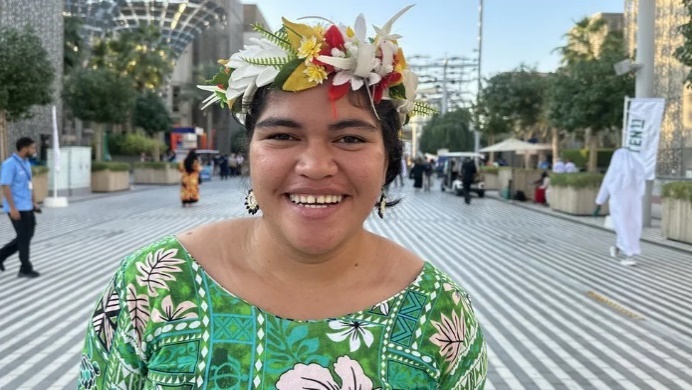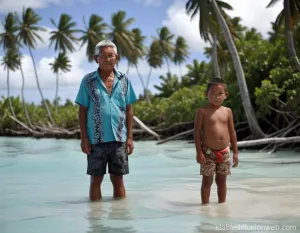On COP28, the showcase of high-potential cutting-edge technologies like Direct Air Capture (technology that captures carbon directly from the air), Hydrogen Fuel Cells, Small Modular Nuclear reactors and other innovations like sci-fi teleportation devices, offered a promising glimpse into the future of combating climate change.
However, there were also sessions hosted by compelling voices of Indigenous people worldwide. These voices shared their miserable stories about the direct impact of climate change on their lives, highlighting the urgent need to relocate from their homelands, thereby presenting an existential crisis. The profound stories happening in present have left a lasting impression resonating at the very core to realize and accept that climate change is real and is here.

COP 28 panel on the sinking islands of Tuvalu
Often, it’s hard for people to realize the fact that climate change is worsening on its orbit but it goes unnoticed because of the relatively lower magnitude of change that imparts on our routine.
“Regrettably! People of Tuvalu face a different climate reality”
Tuvalu is an island country combining a group of 9 tiny islands covering 26 km2 on the South Pacific between Australia and Hawaii. The island is the home to 11000 people as per the 2021 World Bank data.

Image Credit: www.mapsland.com

Tuvalu minister to addressing COP 26 knee-deep in water to highlight climate crisis and sea level rise
Image Credit: Tuvalu’s Ministry of Justice , Communic Ation, And Foreign Affairs / Social Media
The Climate Change Phenomenon – Rising Sea Level
Like many other low-lying island nations, rising sea levels pose a major threat to the livelihood of Tuvalu. The main contributing factors catalyzing the sea level rise include:
- Global Warming
- Melting Ice Caps and Glaciers
- Ice Sheet Melting
- Ocean Currents and Atmospheric Circulation

Image Credit: Earth.org
On June 2023, the NASA Sea Level Change Team published a technical report on the Assessment of Sea Level Rise and Associated Impacts for Tuvalu illustrating the following findings
- The sea level in Tuvalu has risen by 0.15 m over the past 30 years, at an average rate of 5mm/year since 1993, and this rate will increase in the future, potentially more than doubling by 2100.
- Relative Sea level is projected to increase by 0.2-0.3 m by 2050 relative to 2005 and 0.5-1.0 m by 2100, with an upper-end worst-case estimate approaching 2 m.
- The majority of Tuvalu sits at a low elevation, and much of the land plus critical infrastructure will sit below the level of the current high tide by 2050.
- Future Sea level rise will cause a large increase in the frequency and severity of episodic flooding within the 21st century for Tuvalu. Across all future scenarios and under the assumption of no additional protections, Tuvalu will experience more than 100 days of flooding every year by the end of the century.
- Sea level impacts beyond flooding – like saltwater intrusion – will become more frequent and continue to worsen in severity in the coming decades.
The Consequence – Existential Crisis of Tuvalu
The livelihood of the Tuvalu population is largely dependent on fishing and agriculture. The rising concern of flooding and increase in salinity worsen the crop yields. This declining exports but increasing imports imparts a financial burden to the people and the government.
“We all have that umbilical cord attachment to our lands. Anything for my country is worth it!”
Mervina Paueli
Tuvalu Negotiator
COP 28

Image Credit: BBC
Image Credit: BBC
On the other hand, the seawater inflow and ingress on habitable land is another threat to the coastline population. The algae released by the coral bleaching due to rising sea temperature levels is consumed by the fish which does not have any impacts on the host but the humans who consume them. The list can be extended as well for worse.
If the trend continues, future generations can only find Tuvalu and its island peers like the Maldives, Kiribati and parts of the Solomon Islands in archived Maps!

Percentage of Island population threatened by flooding due to climate global temperature and sea level rise
Image Credit: IPCC Fact sheet – Small Islands
Author
-

A Sustainability Professional with 3+ years of experience in the AEC industry. Industry oriented Skills in Sustainability planning, framework implementation, and Compliance monitoring with Voluntary and regulatory standards. In a mission contributing to a greener and resilient future.


